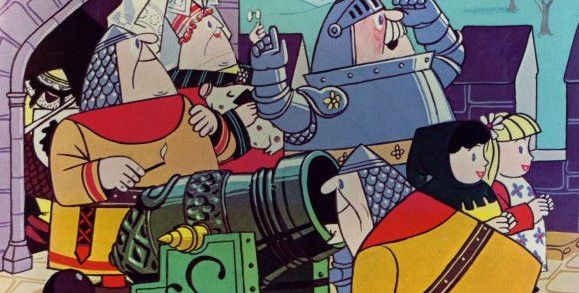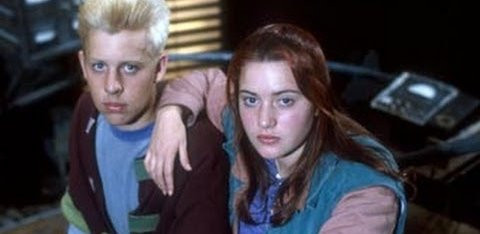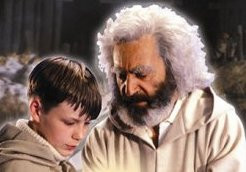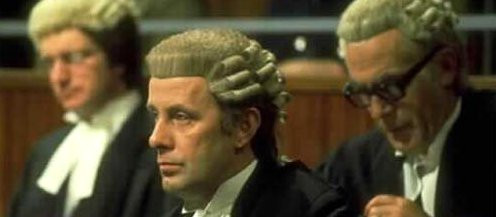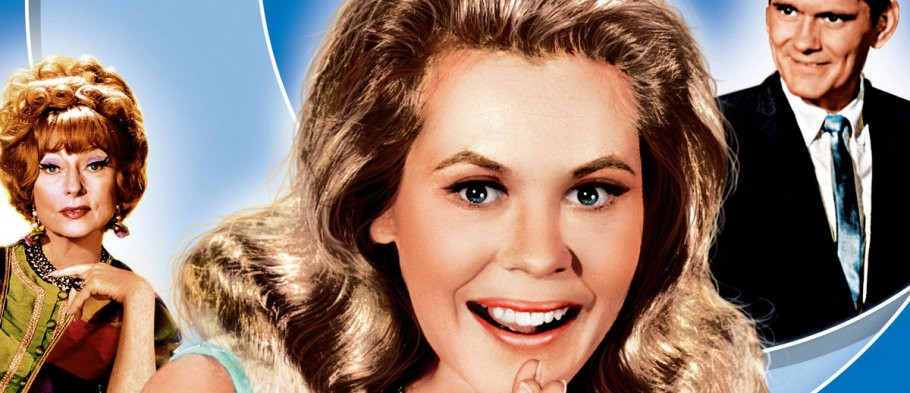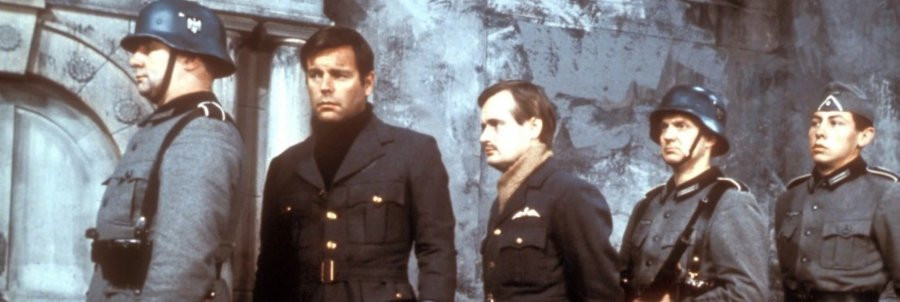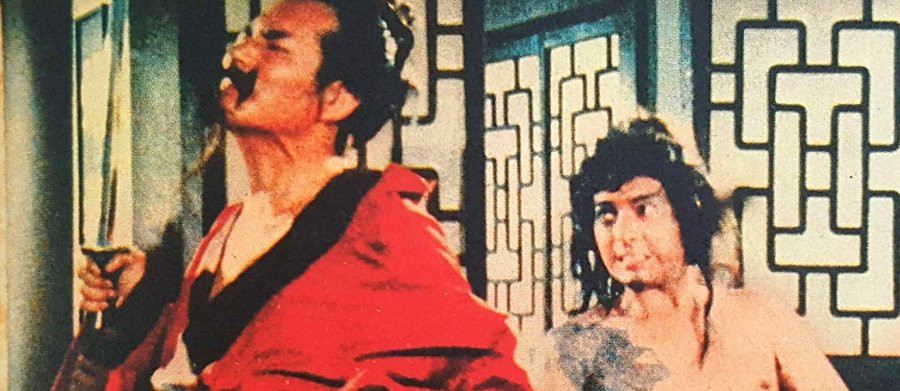
The Water Margin
1972 - JapanThe 14th Century novel 'Water Margin,' also known as 'All Men Are Brothers' and 'Outlaws of the Marsh,' is a really big deal in Chinese culture. Officially one of China's "Four Great Classics," it is the equivalent of Malory's 'Morte d'Arthur' and the early Child Ballads of Robin Hood combined. It shares with them the basic theme of a diverse group of highly skilled fighters banding together to combat oppression.
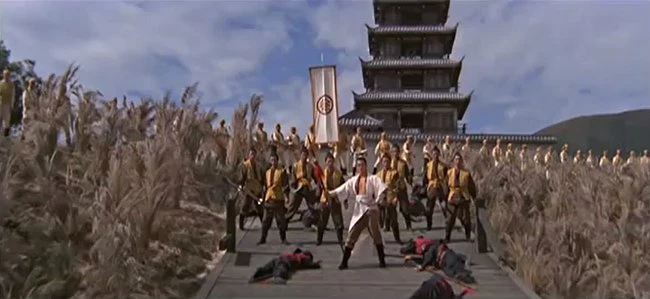
The Water Margin is the great Liang Shan Marsh, where a small army of bandits - many driven into outlawry by injustice - take refuge, the Chinese equivalent of Sherwood Forest but wetter.
There have been several film and television adaptations in China, but most people reading this, on seeing the words 'Water Margin,' will think immediately of the Japanese version that was dubbed into English and broadcast by the BBC in the late Seventies.
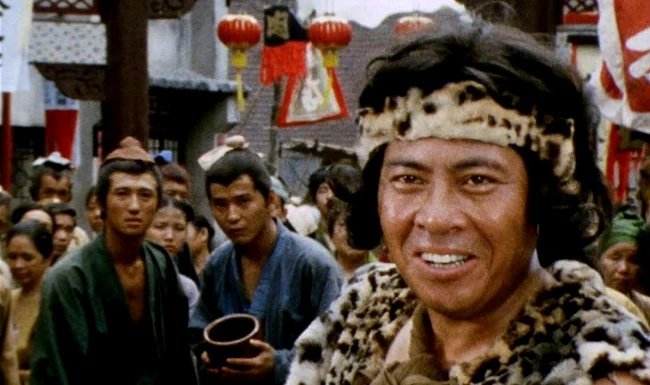
Cue jingly music. "The Ancient Sages said 'Do not despise the snake for having no horns, for who is to say it will not become a dragon?' So may one just man become an army. Nearly a thousand years ago, in Ancient China, at the time of the Sung Dynasty, there was a cruel and corrupt government..."
For anyone growing up in Britain around that time, it was an early dip into "multiculturalism." You actually had boys playing Water Margin and arguing over who would be Lin Chung.
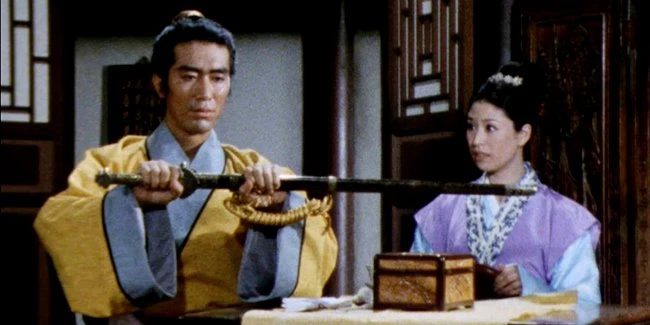
Its appeal to children is not hard to see. Its visual style was bright, colourful, and exotic. It was something very different from the British, American, and European historical drama of the time.
The most distinctive thing about it was the fighting style. It was the height of the Kung Fu craze, but the Japanese did not really get Kung Fu. After all, they had their own martial arts, like Kendo and Karate, which were far more efficient and practical - if not quite so telegenic. Since the source material was Chinese and the action was set in China, the Japanese went with a fighting style that they, as Japanese people, thought looked Chinese.
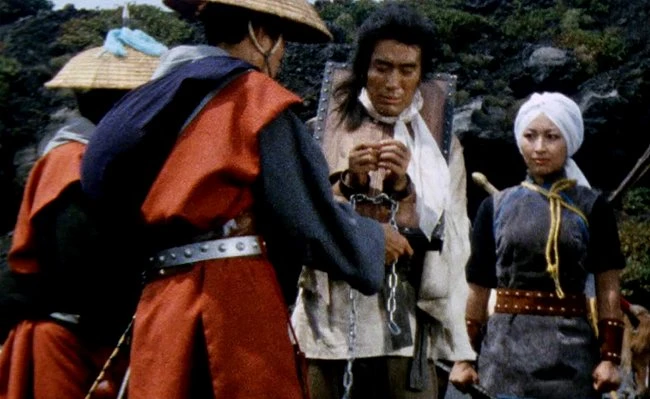
This took the form of a lot of exaggerated jumping about. Much of It was physically impossible and, even if it was possible, anyone actually trying to fight that way would have been beaten up very quickly. It was almost a pastiche of the free flowing Northern Shaolin style of Kung Fu, and it would not have passed muster for a second in Hong Kong, where Kung Fu was treated as a serious fighting art, but it looked like great fun and children loved imitating it.
Anyway, it was easier than learning actual Kung Fu or Karate, which are difficult, and which demand a lot of time and effort.
The show started as a prestige project for NTV, and the money can be seen on the screen. The production values and location work are of a high order, even if there are signs of budget cuts in some episodes to make up for the grandeur of others.
The original novel is a masterpiece of construction, rarely losing its way in the midst of a labyrinthine plot with 108 principal characters. It was never going to be possible to do it justice in 26 episodes, so considerable liberties were taken in the adaptation. A few basic storylines were selected and many of the detailed connections within the novel were lost, so some episodes can seem a bit disjointed.
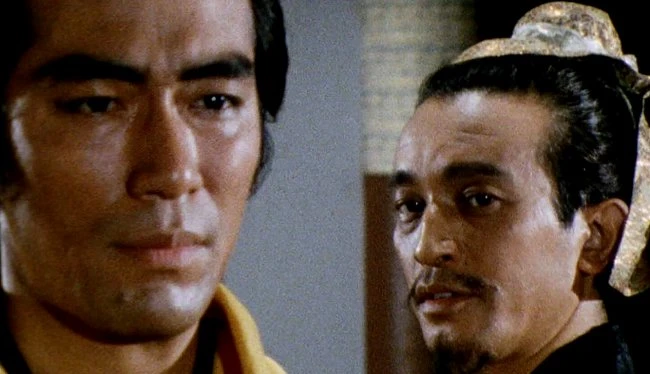
Certain characters, including the formidable Lin Chung (played by Atsuo Nakamura), were given greater prominence than they were in the original 70-Chapter edition of the novel by Shih Nai'an, and in general the protagonists were made nobler and antagonists positively evil where both had previously been more ambiguous and nuanced. Indeed, like the stories of King Arthur and Robin Hood, the novel has gone through a long process of bowdlerisation over the years. The earliest versions have all these "heroes" closer to the violent thugs they probably were, and they had to be cleaned up a lot by and for successive generations.
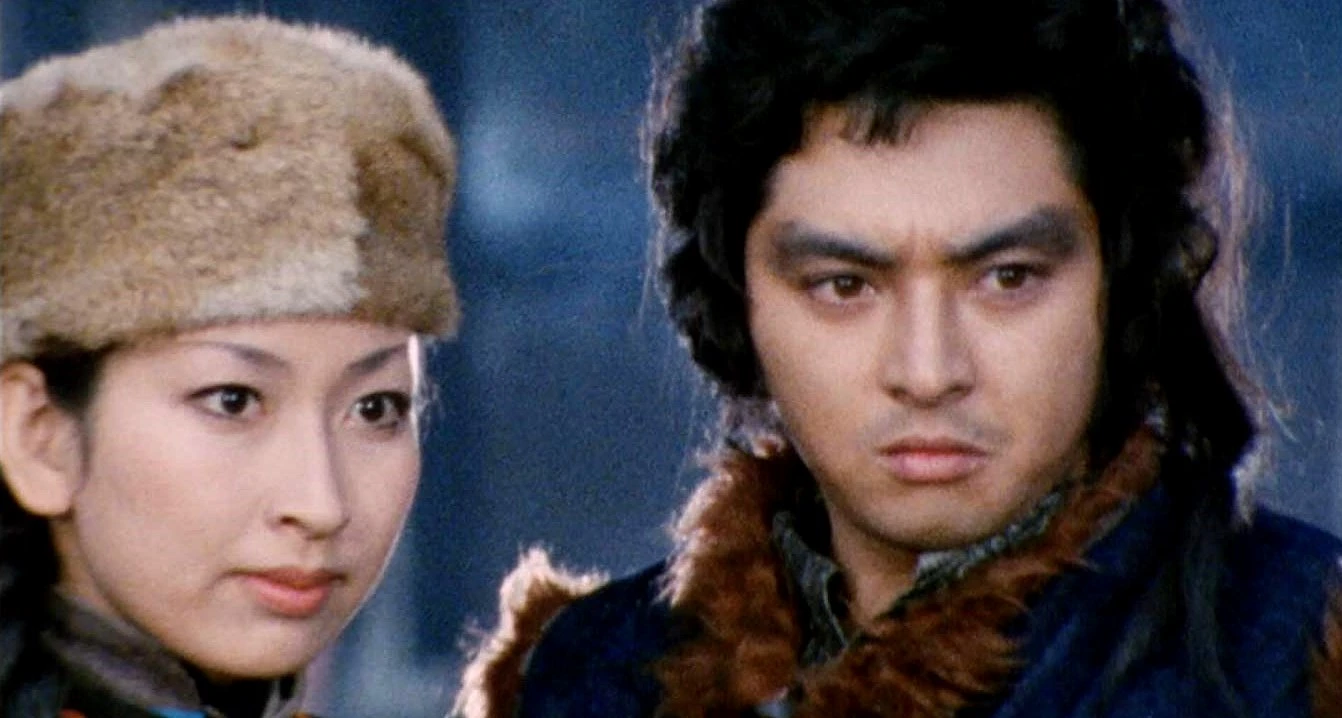
Memorable characters include the "Honest Judge" Sun Chiang (Takeshi Obayashi), the Friar Tuck-like "Flower Priest" Lu Ta (Isamu Nagato), the not overly bright "Black Whirlwind" Li Kwei (Hitoshi Omae), the rough and ready tiger hunter Wu Sung (Hajime Hana), and, in the Chinese tradition of warrior women, the proto-feminist Hu San-Niang (Sanae Tsuchida). Purists please note that the spellings of the character's names are based on the International Movie Database cast list, not the novel: there are differences.
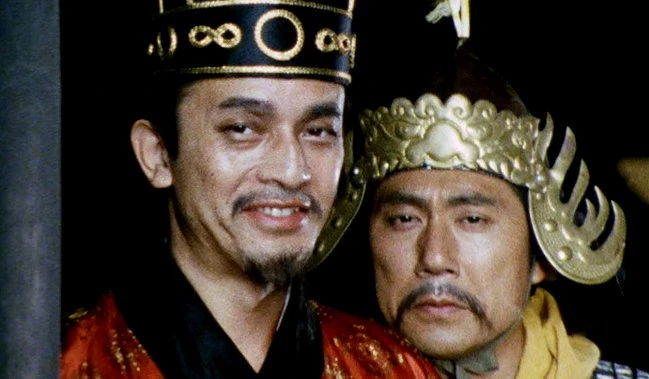
In general, the BBC voiceover cast adopted a somewhat abrupt, breathless way of speaking which they, as British people, thought sounded Japanese. In reality, it was about as accurate as the Japanese notion of Chinese martial arts, but it sounded suitably exotic.
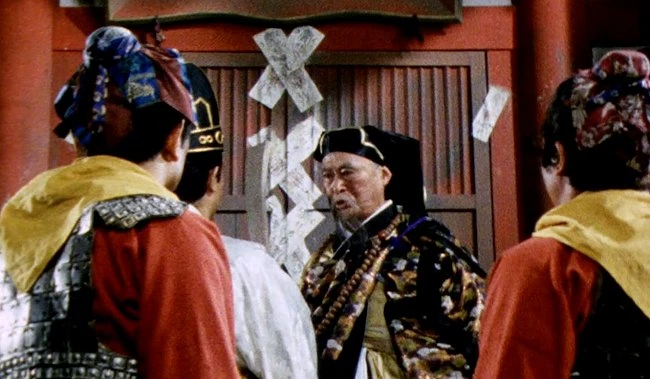
The one note of authenticity came from Burt Kwouk as the unnamed narrator. The Warrington born actor basically represented the whole of East Asia in British film and television for three decades, and he knew how Asian people really speak.
His quoting of the proverbs of the "Ancient Sages" is probably the best remembered aspect of the BBC version. Although derided as "fortune cookie wisdom," some are actually quite profound and they certainly gave Britons the impression that we were being introduced to the philosophy of a completely different culture, which made us feel suitably sophisticated.
Yet none of them are to be found in the original novel. It seems - based on a half-remembered magazine interview with Kwouk it has not been possible to source - that Warrington's Finest made them up himself.
About the reviewer: John Winterson Richards
An experienced freelance writer as well as a consultant, John Winterson Richards has been commissioned and paid to write over 500 articles in print and online. He was a regular guest on the Mind Your Own Business podcasts and a major contributor to that website's blog.
He is the author of 'The Xenophobe's Guide to the Welsh' and the 'Bluffer's Guide to Small Business.'
Under the name Charles Cromwell, John is the author of three novels, 'Young Herod,' 'Seven Days in Jerusalem,' and 'Leonardo Investigates: Death in Pisa.' All can be downloaded from Amazon.
He is the co-writer, with Andrew Harman, past Head of History at
Filton High School, of 'The Context of Christ: the History and
Politics of Judea and Rome, 100 BC - 33AD', also available on Amazon
Kindle.
Published on November 11th, 2019. Written by John Winterson Richards for Television Heaven.


